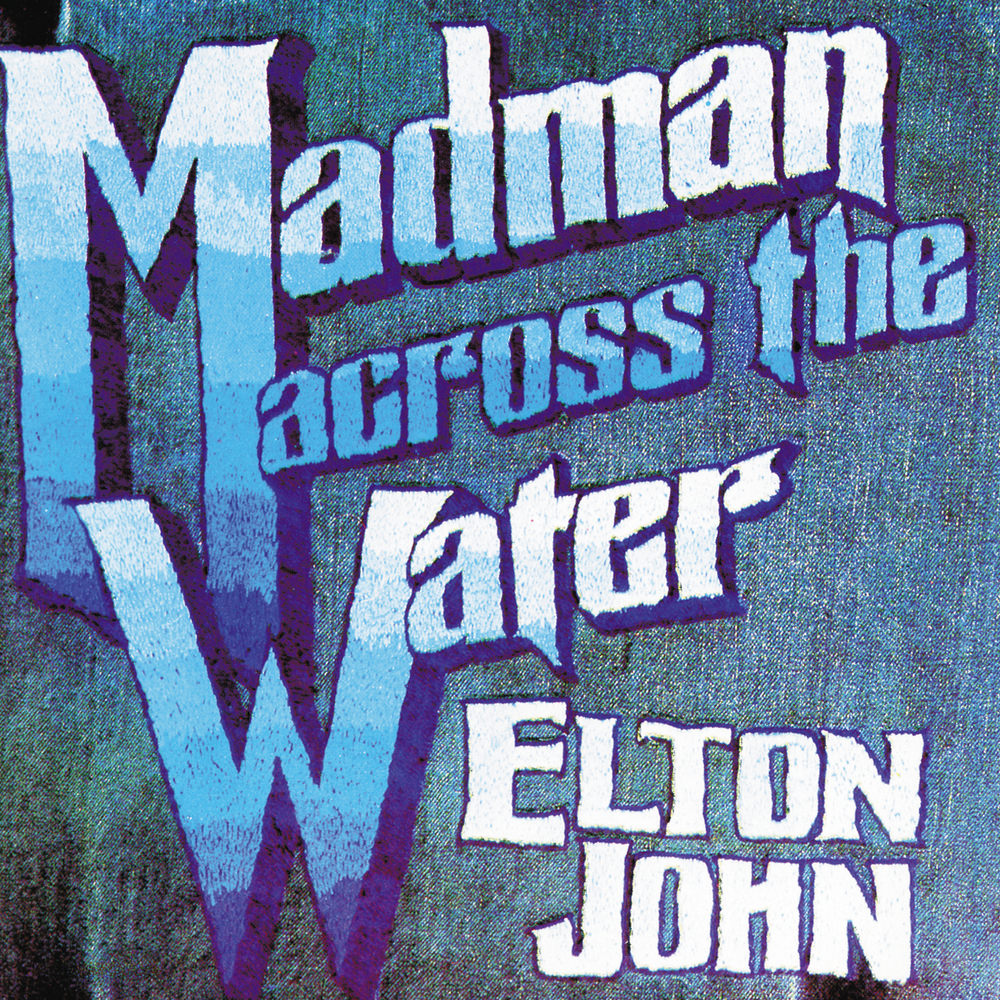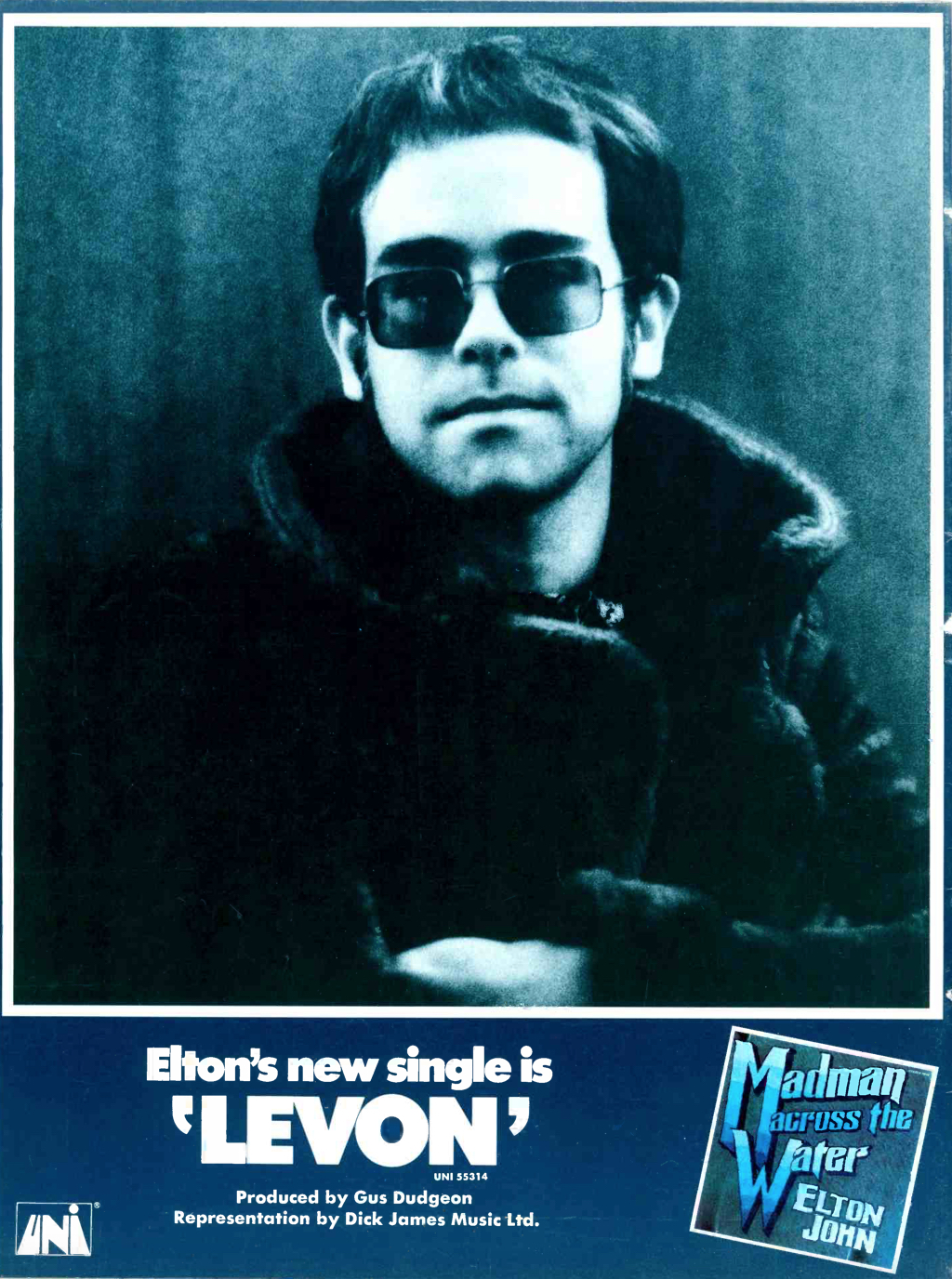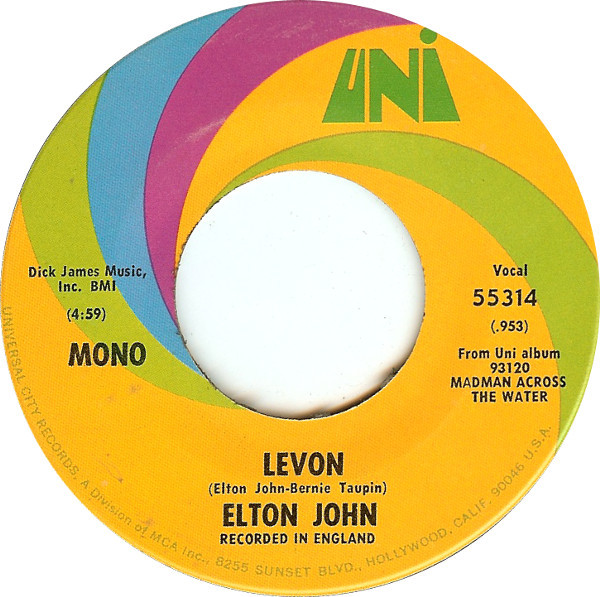Elton John’s ‘Levon’: A Pauper to a Pawn
by Best Classic Bands Staff Elton John’s Madman Across the Water, one of the star’s remarkable run of albums during the ’70s, has received a 50th anniversary release. The expanded edition of the 1971 title includes live rarities, demos and outtakes as a 3-CD and 1-Blu-ray Super Deluxe Box Set. It’s also available on 4-LPs and 2-CDs. These special editions arrived on June 10, 2022, via UMe. [They’re also available in the U.K. here.]
Elton John’s Madman Across the Water, one of the star’s remarkable run of albums during the ’70s, has received a 50th anniversary release. The expanded edition of the 1971 title includes live rarities, demos and outtakes as a 3-CD and 1-Blu-ray Super Deluxe Box Set. It’s also available on 4-LPs and 2-CDs. These special editions arrived on June 10, 2022, via UMe. [They’re also available in the U.K. here.]
The title was John’s fourth studio album, released only two years after his debut. Recorded in 1971, it was a foundation stone of his phenomenal ’70s run. Madman Across the Water was largely written after John had made his initial foray to America, offering the opportunity for lyricist Bernie Taupin to witness the landscapes first-hand. Recorded at Trident Studios in Central London in February and August 1971, it was the first album where all five players of John’s fabled band lineup (Dee Murray, Nigel Olsson, Davey Johnstone, and Ray Cooper) were featured.
The album’s first single, released on Nov. 29, 1971, was “Levon,” and though it peaked in the U.S. at “just” #24, it was his second-highest at the time, and fared better than the album’s now-better known single, “Tiny Dancer,” which only reached #41. (None of the songs were released as singles in the U.K. at the time.)
After John’s brief piano intro, the first verse is fairly straightforward, beginning with:
Levon wears his war wound like a crown
He calls his child Jesus (As the new edition’s liner notes reveal, “Madman mentions Jesus several times. Jesus was everywhere in the early 70s – Jesus Christ Superstar, Godspell, “Spirit in the Sky.” “Tiny Dancer” contains the lyric “Jesus freaks, out in the streets.”)
The second verse, with the brilliant orchestral arrangements written and conducted by Paul Buckmaster, includes the line:
In a garage by the motorway (pronouncing “garage” as “carriage,” and then using the word for what Americans call “highway”)

This ad for “Levon” and Elton John appeared on the back cover of the Nov. 27, 1971 issue of Record World.
As John writes in the 50th anniversary liner notes, “Buckmaster’s arrangements soar above the songs that Bernie and I wrote after our first trip to America.”
Related: Buckmaster died in 2017
The song continues with John’s stunning vocal:
He was born a pauper to a pawn on a Christmas day
When The New York Times said, “God is dead
And the war’s begun”
Oh, Alvin Tostig has a son today (Who? What? Taupin has said the name is fictional. “He seemed an American everyman,” he says.)
And as the band kicks in…
And he shall be Levon
And he shall be a good man
And he shall be Levon
In tradition with the family plan (At the time, John’s accent and pronunciations – in this case, for the word “tradition” – still took getting used to by American audiences)
As John himself explained cryptically, the song “is about a little boy, who gets fed up with what he’s doing, and wishes he could get away from it, but he really can’t.”
Taupin says he doesn’t “remember where I wrote it and what was in my mind.” He calls it “one of our finest moments lyrically and melodically. I’m immensely proud of this song, incredibly dynamic and soulful.”
All formats of the new editions contain Bob Ludwig’s 2016 remaster of the main album. There are 18 previously unreleased tracks across the Super Deluxe 3-CD/1-Blu-ray box set, which also contains rare, restored material from the era, piano demos of the album.
Listen to the piano demo for “Levon” from Elton John
The anniversary collection also includes the audio of the BBC Sounds For Saturday concert, broadcast in 1972. The Blu-ray contains a 5.1 mix by Greg Penny, plus the Sounds For Saturday and his 1971 Old Grey Whistle Test performance.
It’s been said that the inspiration for the song was The Band’s Levon Helm. Taupin denies it but coyly says, “if he was, it was in title alone.”
“Levon” was a mainstay of the Elton John Farewell Yellow Brick Road tour.








3 Comments so far
Jump into a conversationWonderful set, go out and get it right now!
There’s always the lurking question of whether this song could be accused of being antisemitic. On one level I see it as an allegory of the birth of Christianity. But I get the feeling the writers will deny this. Still it’s one of my favorite EJ songs.
I never knew he was saying “garage” until about 10-12 years ago. That I get. But Alvin Tostig? I agree with the writer here. What? Who? Also, never knew THAT until about a dozen years ago.